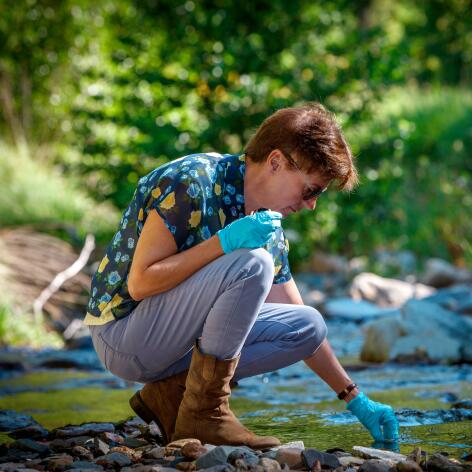At 61 years of age, Claude has proven herself. Director of a pioneering laboratory at the frontier between chemistry and ecology, research director of some thirty theses and more than fifteen programmes, multiple award winner of scientific prizes and medals, responsible for 42 patents and more than 160 publications, the Lorraine native has no intention of hanging up her coat just yet. After all, how could she when we are still breaking new ground and succeeding, day after day, in creating positive chemistry, inspired by nature, and a powerful solution to the most pressing environmental challenges?
